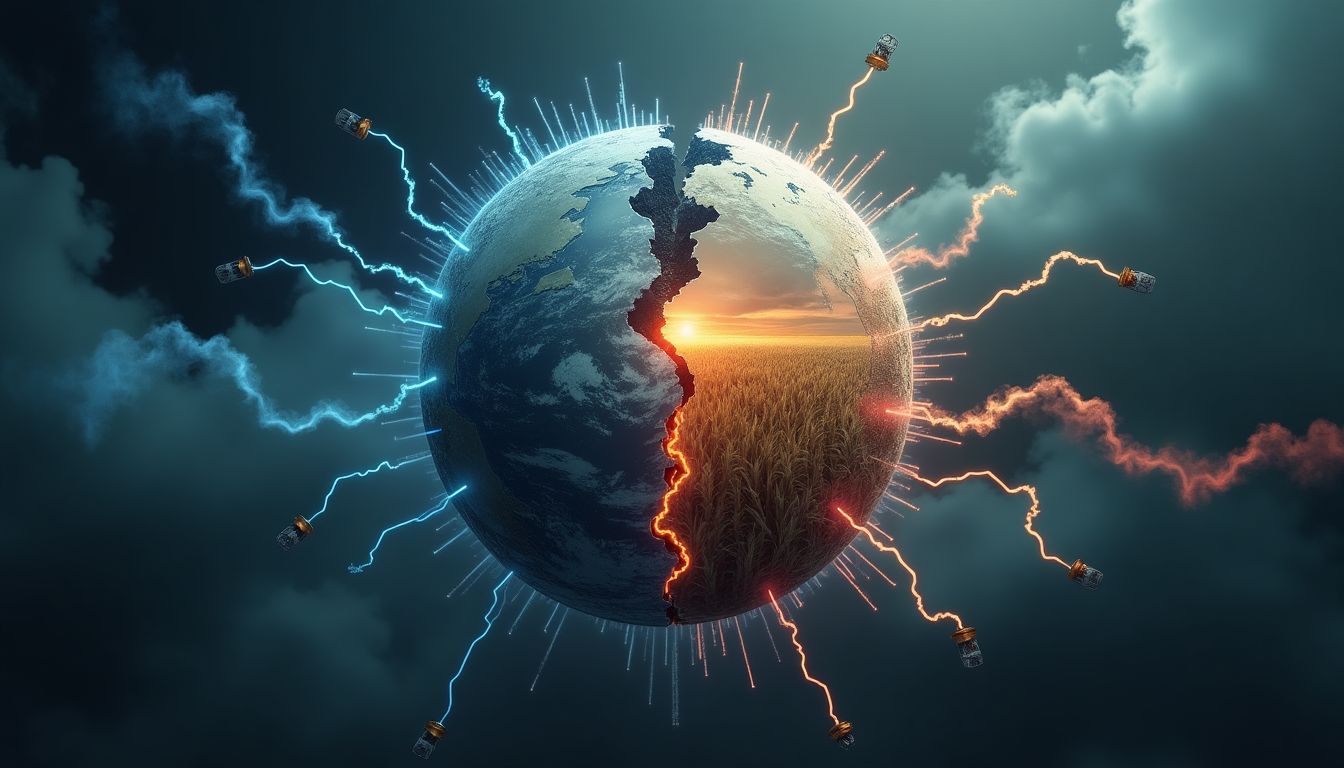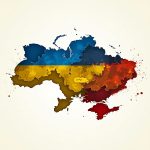Imagine a world where the seemingly unbreakable thread of globalization is slowly unraveling. Picture a delicate balance disturbed by seismic geopolitical shifts, sending ripples through economies as easily as a pebble troubles a serene pond. If you’re thinking, “That sounds a lot like today's world!” you're onto something. Welcome to the chaotic world we dive into today, inspired by the enlightening thoughts of Peter Zeihan on the geopolitical dance between Russia and Ukraine.
On February 23, the unthinkable started unfolding: Russia's armored claws began their heavy-handed move into Ukraine. To the everyday person, this might seem a faraway concern—a grim headline to scroll past while sipping morning coffee. Yet, as Zeihan pointedly explains, this conflict is weaving a new fabric for the global economy, much like how a single missed stitch can slowly unravel the most intricate tapestry. It's a story of disruptions cascading down like dominoes—and we're not exempt.
The Essence of Disruption: Natural Gas
Russia, which can boast of being Earth’s largest natural gas exporter, is also Europe’s atmospheric lifeline, supplying over 80% of its consumption. Now visualize Europe as a marathon runner suddenly denied oxygen. Panic, strategic head-scratching, and makeshift solutions abound. This precious natural gas, akin to the blood circulating through the delicate veins of the European economy, faces potential logistic nightmares as routes are rerouted north through the Baltic Stream or south via Turkey. The jig just got a whole lot more complicated, becoming something like trying to dance on a wobbly platform.
And while all eyes are glued to the gas meters ticking upwards, Ukraine stands awkwardly in the gathering shadows. Picture an ongoing drama where the hero is left at the villain's mercy, dependent on Russia for natural gas. Yet, paradoxically, there lies a shivering advantage in this cruel dance: Russia needs those Ukrainian pipelines open to reach Europe, like a spider needing its web intact to catch flies.
The Fertilizer Frenzy: Wheat Wishes and Famine Fears
Imagine two-thirds of life's very essence—fertilizer—going ‘poof’ from the equation. Russia, the elemental force behind nitrogen and potash-based fertilizers, teeters on the brink of disappearing from international supply chains. Zeihan describes the global stage already trembling at fertilizer prices six to seven times higher than before, painting an unsettling image of potential famine loomings—like shadows from a storm cloud over a field of wheat.
For those garlic-knot-loving souls out there, brace yourselves; wheat could soon become the new gold. Both Russia and Ukraine are giants in this grainy game. Losing their contributions is akin to removing key chess pieces, leaving us with skyrocketing wheat prices—think tripling at least. It’s a sobering reminder of the power these invisible actors wield over the global pantry.
Metal and More: The Industrial Backbone
Russia's presence as the largest exporter of semi-finished iron and crude oil carves out an indelible niche in our modern narrative. They’re also a colossal player in the export of iron ore and nickel, the raw materials essential to crafting the stainless steel that houses the world’s most beloved devices. Picture a sculpture without its backbone—steel’s removal echoes this absence in our technology-dependent lives. Shivers run down the spine.
Russia doesn’t stop there. Imagine the world without shimmering platinum or tantalizing group metals—the hidden gems behind our high-tech wonders and catalytic converters, one of life's unspoken heroes. Remove these from supply chains, and suddenly, technology seems like Cinderella without her magic gown.
Fuel for Thought: Crude Realities and Energy Complexities
As if starring in a high-tension thriller, Russia slides seamlessly from gas to oil. Though playing second fiddle globally, they control enough refined products to make the modern world blink—gasoline, diesel, and other vital infrastructures. It’s not just Europe that taps Russia's veins; for a global cast, including Asia and even the USA, Russia offers a crude lifeline amid oil’s turbulent waves. Banning Russian crude? It’s playing with fire—and perhaps a chapter the Biden administration is debating writing.
A comedy of technological errors often suggests that green energy can solve everything. Yet, as Zeihan notes, even if Europe suddenly decided to go solar or wind-heavy, the grim math remains. Replacing natural gas would require an almost herculean barrage of new infrastructure, a veritable Noah’s flood of turbines and sunny setups.
Broader Impacts: Not Just Europe
While European fingertips tremble at Russian energy strings, a broader circle includes significant Asian players like China, Japan, Korea, and Taiwan. Their industries lean heavily on Russia's exported raw materials. Ponder the bricks that build any skyscraper or phone; many originate from Russian hands. Their removal could destabilize more than just economies—it could shake societal foundations.
Now, imaging this scenario becomes more daunting when considering this transformation of Russia, going from an industrial hub in Soviet times to a mere exporter, something vastly easier to flip on than factories.
Shaping a New Economic Narrative
So, what nails the coffin of globalization's current tale? Existing models are changing dramatically, casting shadows like those theatrical spotlights at final curtain calls. Russia's resource arcs are suspected to dry up, turning inflation from a mere buzzword into a new economic reality. The path forward, as intricate as it seems, sparks a question—what does this new world look like?
Could we be on the brink of better models? Is there a potential silver lining, a return to localism and self-sustaining economics? If anything is clear, it’s that nations now must navigate a labyrinth chaotic in design but steadied by human resilience.
Are we too reliant on any singular economic path? How do we fortify ourselves against such global tremors? The debate’s sizzling, and I'd love to hear from you. Join the conversation and add your voice to the growing narrative. Become part of our community at iNthacity: the "Shining City on the Web".
Remember to like, share, participate, and comment below. Let’s tackle these wandering giants of geopolitics together. Who knows what brave new world we’ll build a stronger foundation upon?
Wait! There's more...check out our gripping short story that continues the journey: The Black Sector
Disclaimer: This article may contain affiliate links. If you click on these links and make a purchase, we may receive a commission at no additional cost to you. Our recommendations and reviews are always independent and objective, aiming to provide you with the best information and resources.
Get Exclusive Stories, Photos, Art & Offers - Subscribe Today!


























Post Comment
You must be logged in to post a comment.